

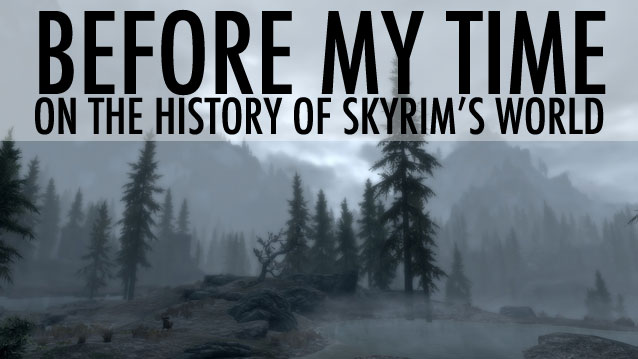
(This article is indebted to my girlfriend, Helen, who found the words for this article long before I did.)
These days, it’s rare for us to find out about a major historical event after it happens. Between the internet and a twenty-four hour news cycle, it is far more likely for many of us to find out something is happening, or just happened, right now. Finding out something major happened more than twenty-four hours ago is something many of us rarely experience any more.
But sometimes we do, and it can be one of the weirdest and most disorientating sensations possible in this day and age. When the tsunamis hit eastern Japan, we were all watching the livestreams over the internet. When Osama bin Laden was killed it was all over twitter long before the press outlets had confirmed the rumours and gone to air. Every time police clamp down on any of the Occupy protests anywhere in the world, a huge audience is watching through that connection between their computers and the protesters’ smartphones.
I say “everyone” but, of course, there will always be people away from their computers and televisions who, regardless of how big the piece of the news is, won’t hear about it right away. Such a thing happened to this person I know on Twitter. I won’t name and embarrass them but, essentially, while all of Twitter was exploding with the rumours of Osama bin Laden’s death, this person was livetweeting a film they were watching while clearly not checking their time line. They were tweeting utterly obliviously. An hour or so later, once the movie was over, they finally caught on. They were completely flabbergasted. They were only an hour or so behind but, still, they could not believe that this historical event had happened and they had been oblivious to it.
It’s an odd sensation. Finding out not that something is happening but that is has happened. Done. Complete. Over. I’m not sure it is something I had ever personally experienced (what with the amount of time I waste every day in front of a monitor). Never, that is, until I started playing Skyrim.
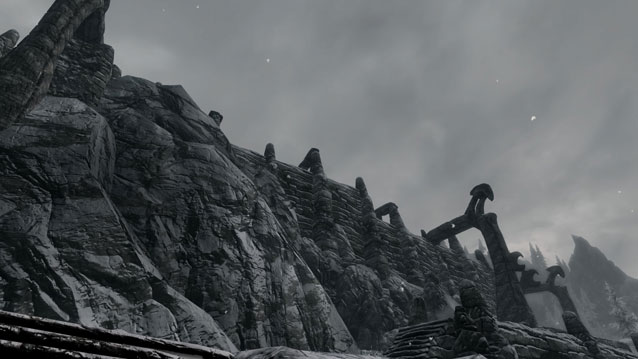
All the Elder Scrolls games take place in different regions and time periods on the same, consistent continent of Tamriel. Typically, each game takes place several decades after the last, and each game deals with the next big historical event of the world. Such was the case between Morrowind and Oblivion, at least. The blight and the events of Red Mountain that occurred during Morrowind are still pretty fresh history when the daedric invasion of Cyrodiil happens in Oblivion.
Throughout the series, I have always committed a lot to these worlds, their people, and their places. I’ve carefully gone across their landscapes—both natural and political—to understand precisely how they work and how they fit together. But then Skyrim came along and jerked me not decades into the future but centuries. Hundreds of years fill the void between the end of Oblivion and the beginning of Skyrim, and boy did a lot happen in those years.
A vast war swept across Tamriel as the Aldmeri Dominion of elves invaded the Empire and burned half of it to the ground. The Imperial City itself, where I spent countless hours walking the streets, was reportedly ransacked. Cloud Ruler Temple, home of the Blades, was reportedly burnt to the ground.
It has taken me dozens of hours in Skyrim to put the history together and figure out what happened. No one stops and tells you; you have to ask; you have to read. At first some crazy lunatic in Whiterun mentioned something about how worshipping Talos, the man-god, had been outlawed. Then, bit by bit, the full extent of the history that I was oblivious too became apparent to me.
And then, worse still, just this week an NPC nonchalantly told me that many years earlier Red Mountain had erupted and obliterated all of Vvardenfell—the island on which the events of Morrowind play out. Balmora. Vivec. Ebonheart. All the places I had spent hundreds of hours getting to know were gone. It was like awakening from a coma to find out that everyone I ever knew was dead.
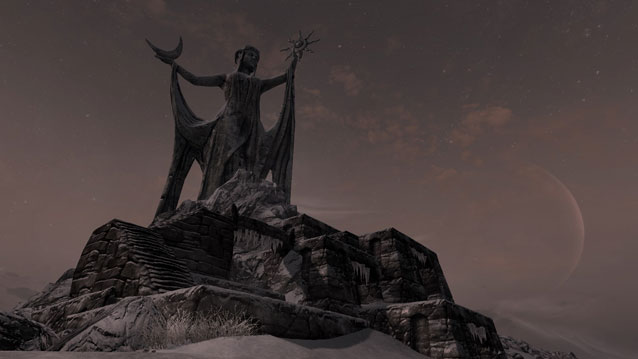
This doesn’t happen. Not in videogames. Not in real life. We find out about things happening now and, in games, we are then able to do something about it, damn it!
But in Skyrim I am absolutely helpless to do anything about these events that have already retreated into the history books. I’m not of this world. The Tamriel I know is dead, lost to history and my dusty old copy of Oblivion. Like the friend who struggled to come to terms with her belated knowledge of Osama bin Laden’s death, or like a person from a previous century receiving a telegram about the death of a loved one months earlier, the realisation of what had already happened, of what was already over, completely upended me. Now, piecing together this history is more important to me than the current-day dragon issues facing Skyrim’s populace. I need to know exactly what happened, even if it is too late for me to do anything about it.
It’s hard to describe how that feels, but if you have followed the Elder Scrolls series as closely as I have, then perhaps you are experiencing something similar. These events happened. Huge, historical events that shaped the very foundations of Skyrim’s story, world, and factions. They happened, and were lost to history aeons before I clicked on “New Game.” I’m still not sure I’ve come to terms with that.
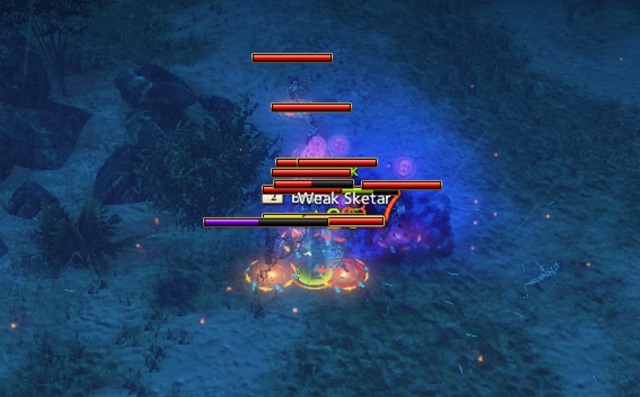
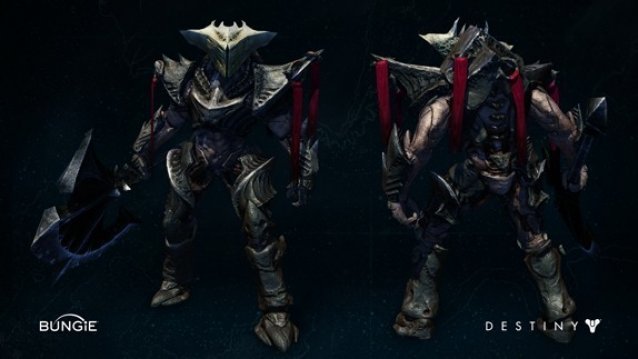

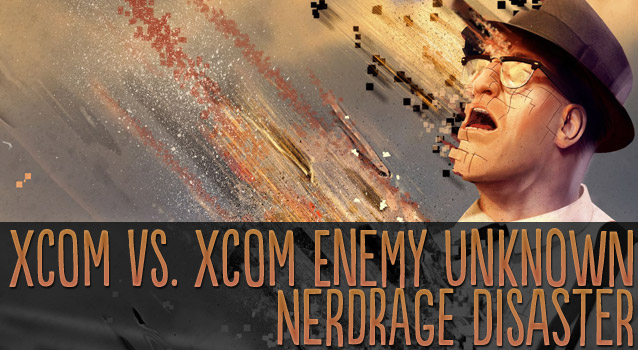
 Halo 5: Guardians Hands-on review (beta)
Halo 5: Guardians Hands-on review (beta) The Internet of Things: How It'll Change Your Life Next Year
The Internet of Things: How It'll Change Your Life Next Year Free Realms’ Referee Ruby’s Guide to Racing
Free Realms’ Referee Ruby’s Guide to Racing Styx: Master of Shadows Wiki – Everything You Need To Know About The Game .
Styx: Master of Shadows Wiki – Everything You Need To Know About The Game .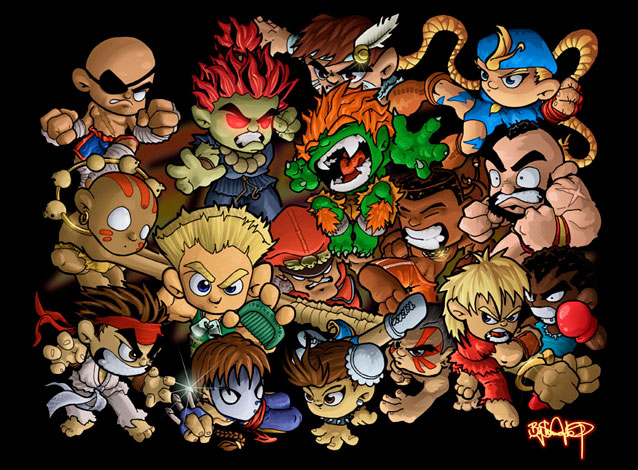 One of the Best Street Fighter fan-art youll ever see
One of the Best Street Fighter fan-art youll ever see